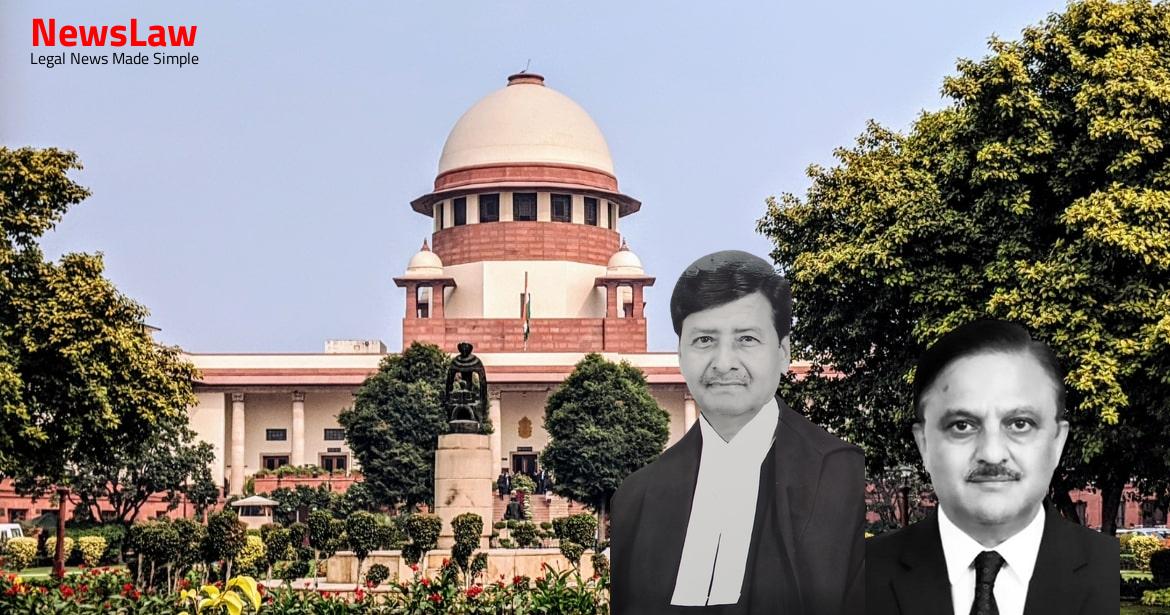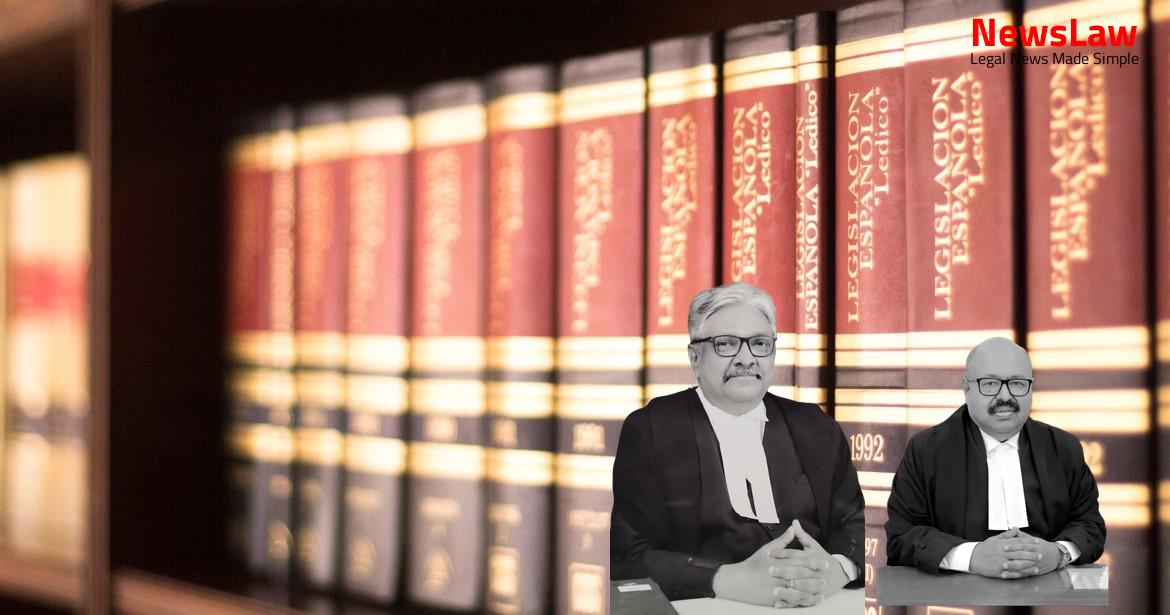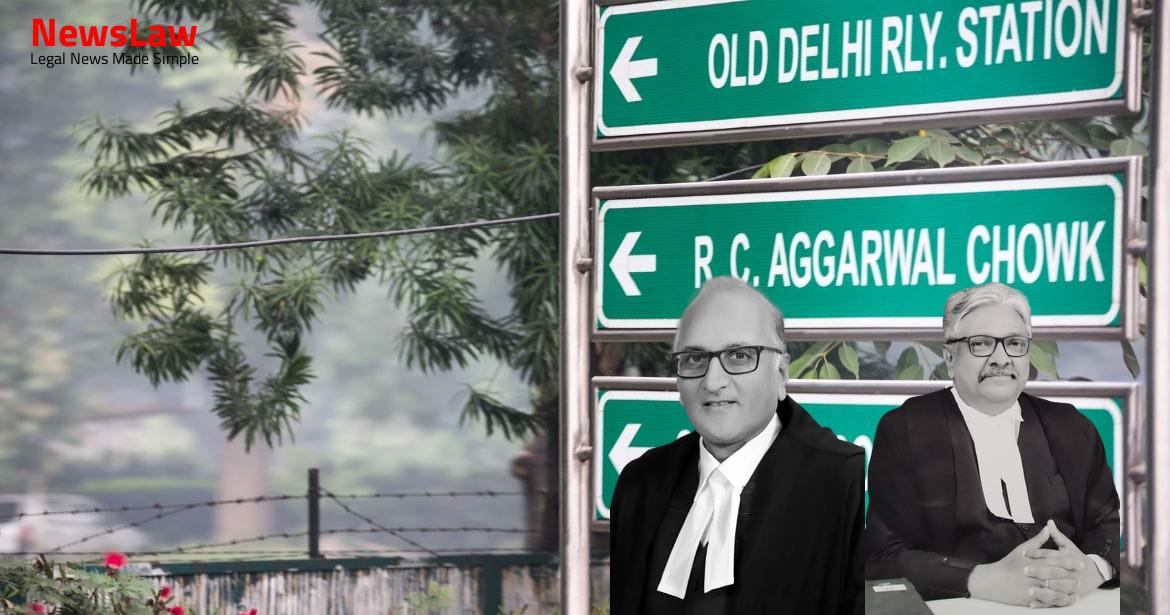Explore the nuances of a recent legal case where the High Court examined the fairness, reasonableness, and transparency of license allocation policies. The court’s analysis focused on evaluating the impact of the ‘First Come First Serve’ principle on license grants, emphasizing consistency, fairness, and adherence to constitutional principles. Discover the legal intricacies surrounding license allocation in a bid to uphold transparency and good governance in administrative decisions.
Facts
- The High Court cancelled the grant of license to the appellants (impleaded respondents 4 to 7) due to the unfair policy of First Come First Serve basis.
- The cancellation was based on the grounds of lack of fairness, reasonableness, and transparency in the grant of licenses.
- The High Court directed the State Government to reconsider the grant of license after establishing a transparent and fair policy for granting licenses.
- The appellants are challenging the cancellation of their license in the Supreme Court.
- M/s Anant Raj Ltd. was granted licence No.54 of 2013 on 6 July, 2013 for setting up a group housing colony in Sector 63A, Gurgaon.
- Respondent nos.7 to 9 had their application for licence rejected by the authority on the premise of applying for development in Sector 60 before the publication of DDP for Sector 63A.
- The rejection of licence application for Respondent nos.7 to 9 was challenged in the High Court under Article 226 and 227 of the Constitution.
- The High Court directed a fresh decision on the licence application of Respondent nos.7 to 9, irrespective of the sector in which their land fell.
- Their application was again rejected by the second respondent despite the High Court’s direction.
Also Read: Recovery of Misappropriated Temple Funds: Court’s Legal Analysis
Issue
- The issue in this batch of appeals is whether the methodology used by the State of Haryana for granting licenses on its own land for a group housing colony in Gurgaon-Manesar Urban Complex is just, proper, and legally valid.
- The methodology in question is based on the First Come First Serve principle.
- The legality and fairness of this methodology will be assessed in the context of the Final Development Plan for 2025.
Also Read: Legal Analysis in Assault and Homicide Case
Arguments
- The learned senior counsel argues that the policy for grant of license on a First Come First Serve basis has been a long-standing practice followed by the respondent authorities.
- There was no prescribed policy before July 5, 2012, regarding the consideration of license applications based on Draft/Final Plan.
- The practice of accepting applications based on Draft Plans continued, even though the Final Development Plan was published, and licenses were granted to the appellants much later.
- The cancellation of the license grants by the High Court is deemed unsustainable as the process followed by the respondents was in accordance with widely circulated policies.
- The judgment in Centre for Public Litigation case regarding fair distribution of natural resources does not apply to the case at hand, as it involves private land development and not state-owned resources.
- The interference by the High Court in canceling the license grants is argued to be unwarranted.
- The State’s counsel supports the arguments made by the learned senior counsel representing the appellants.
- The State’s Senior Additional Advocate General confirms that the processing for license grant was based on First Come First Serve basis, and the rejection of certain applications was justified.
- State Government’s policy for grant of license did not prescribe First Come First Serve basis
- No material provided on record to support the basis of First Come First Serve principle
- State authorities did not explain the origin or justification for adopting this practice
- High Court’s examination of the issue lacked support from the existing scheme and policies
- Absence of clarity on the process initiated for granting licenses under the State Government’s policies
- Established practice should be consistent, predictable, and fair, in compliance with Article 14 of the Constitution
Also Read: Legal Analysis in Disciplinary Action Case
Analysis
- The High Court found the grant of license on ‘First Come First Serve’ basis to be unfair and transparent, leading to the cancellation of licenses granted to the appellants.
- The State Government introduced a new policy in 2017 superseding the 2006 policy, to review pending and future license applications in a fair and transparent manner.
- The seniority of applicants for licenses was based on the date of application receipt, highlighting the importance of good governance.
- The principle of ‘First Come First Serve’ lacks consistency, fairness, and transparency in the context of license allotment.
- Granting licenses on a ‘First Come First Serve’ basis involves chance and risks discrimination, which goes against the principles of good governance.
- The State has a duty to ensure fair competition and non-arbitrariness in license allotment processes.
- Applications based on Draft Development Plans do not guarantee rights until the Final Development Plans are published.
- Stakeholders rushing to submit applications based on insider information poses challenges to fair competition and public interest.
- Justifications provided by the Respondent State regarding the ‘First Come First Serve’ policy lack clear origins and factual basis.
- The High Court directed the State Government to frame transparent and fair policies for license grants after cancelling licenses granted under the ‘First Come First Serve’ basis.
- The policy of first come first serve has been adopted as a principle of Natural Justice.
- No natural resource in the ownership of Government is offered through a licence under Act No.8 of 1975.
- The judgement in Centre for Public Interest Litigation and others Vs Union of India and others may not be applicable in such licence cases.
- Applications for grant of licence are considered on merits and as per provisions in the Act of 1975 and related Rules.
- The Government is actively considering devising an alternate transparent system for granting licences.
- The Appellant’s argument that their grant of license was not challenged in the writ petition before the High Court is dismissed as they were party respondents and aware of the issue.
- The High Court found the First Come First Serve basis for license allocation to be invalid and thus cancelling the granted licenses was justified.
- The Appellant’s claim of consistency in the license allocation process is rejected as those not party to the proceedings were not affected, and the present Appellants were given a fair opportunity to defend their case.
- The principle of First Come First Serve basis for license allocation was deemed irrational, against public interest, and violative of Article 14 of the Constitution.
- Respondents 7 to 9 cannot plead for reconsideration of their license applications under the impugned policy upheld by the Court.
Decision
- Applications submitted prior to the effective date of the policy shall be considered premature and returned for re-submission after publication of the Development Plan.
- Effective dates for acceptance and consideration of license applications vary based on the potential zone of the area.
- In case of multiple potential zones in a Development Plan, the policy for the higher category zone applies.
- Demand drafts of scrutiny and license fees dated before the publication of the Development Plan may be accepted if valid for at least one month from application submission.
- The effective date for acceptance of license applications remains as per the policy.
- All pending applications are disposed of as per these instructions.
Case Title: ANANT RAJ LTD. ( FORMERLY ANANT RAJ INDUSTRIES LTD.) Vs. THE STATE OF HARYANA (2021 INSC 680)
Case Number: C.A. No.-006471-006471 / 2021



